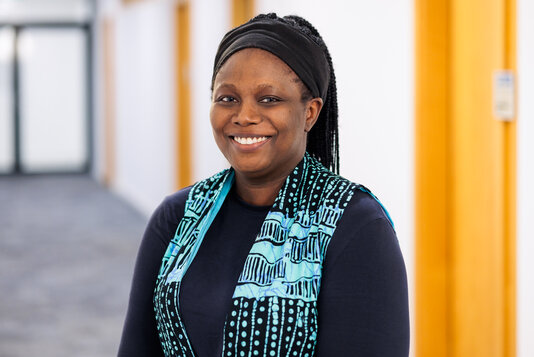
“Discourse-pragmatic features” (DPFs) is an umbrella term that covers a range of largely syntactically optional linguistic items, which perform different interpersonal functions, such as signalling attitudinal meanings, and/or textual functions, including marking discourse initiation (Pichler, 2016). These include pragmatic markers (e.g., “well”), general extenders (e.g., “or whatever”), quotatives (e.g., “like”), and intensifiers (e.g., “totally”). Past studies on different world Englishes have revealed variation in the use of different categories of DPFs across various English varieties (Aijmer, 2015). While there is increasing research on borrowed DPFs in African Englishes, there is less attention on the comparative study of English DPFs in these varieties. Very few studies confirm similarities and differences between these African varieties, such as in the use of stance markers between Ghanaian English and Nigerian English (Gut & Unuabonah, 2019), without capturing other categories of DPFs or other African English varieties.
In order to carry out a comprehensive investigation of the use of DPFs in African Englishes, this project will examine four categories of English DPFs: pragmatic markers, general extenders, intensifiers and quotatives in three African English varieties (Ghanaian English, Nigerian English, Ugandan English). Postcolonial pragmatics and variational pragmatics will serve as the theoretical basis for the study. Data will be extracted from the Ghanaian, Nigerian and Ugandan components of the International Corpus of English and subjected to statistical and qualitative analysis. It is expected that the study will contribute to both the empirical description and theoretical modelling of DPFs in African Englishes and in world Englishes in general. Moreover, the results from this project will contribute to the debate on nativisation and endonormative stabilisation processes in the varieties as well as contribute to the pragmatics of world Englishes research.

Prof. Foluke Olayinka Unuabonah
Redeemer’s University (Nigeria) | English Linguistics
Foluke O. Unuabonah is a professor at the English Department, Redeemer’s University, Ede, Nigeria. Her main areas of research include (corpus) pragmatics and discourse analysis. She has published articles on (borrowed) discourse-pragmatic features in Nigerian English as well as borrowed discourse-pragmatic features in Ghanaian, Kenyan, South African and Tanzanian Englishes. She has also investigated social semiotic resources in multimodal texts such as memes and posters, and has explored discourse-pragmatic items in quasi-judicial public hearings.
Foluke Unuabonah has just completed a research project on different speech acts (requests, offers, apologies, refusals, and thanking) in Nigerian English, in a joint project with colleagues at the University of Münster, Germany, and has also compiled the Historical Corpus of English in Nigeria with other colleagues in Redeemer’s University. In her present project, she is carrying out a comparative study of English discourse-pragmatic features, including pragmatic markers, intensifiers and quotatives in Ghanaian, Nigerian, and Ugandan Englishes.
She has been a visiting scholar at the University of Münster, under the Alexander von Humboldt Foundation as well as the Stellenbosch Institute for Advanced Study, South Africa.

Prof. Christiane Meierkord
Ruhr University Bochum | English Linguistics

Prof. Christiane Meierkord
Ruhr University Bochum | English Linguistics
Christiane Meierkord holds the Chair of English Linguistics at Ruhr University Bochum and has previously taught at the universities of Erfurt, Münster and Stockholm, where she was a visiting professor.
She is author of “Interactions across Englishes: Linguistic Choices in Local and International Contact Situations” (2012) and has published extensively on the use of English as a lingua franca, from a descriptive as well as from a sociolinguistic perspective. She has also edited “Ugandan English. Its Sociolinguistics, Structure and Uses in a Globalising Post-Protectorate” (2016), together with Bebwa Isingoma and Saudah Namyalo, and “World Englishes at the Grassroots” (2021), together with Edgar Schneider. She is currently involved in a project that intends to give voice to non-elite users of English, who have often been neglected and marginalised in research on world Englishes in postcolonial settings.
Website
https://www.ruhr-uni-bochum.de/engling/staff/meierkord/index.html.en